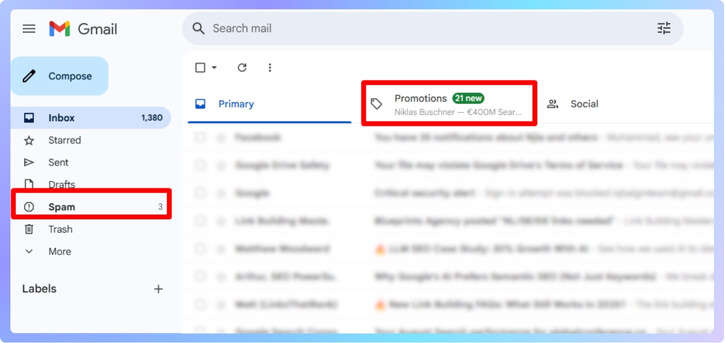Submitting a research paper to a conference is both exciting and nerve-wracking. You invest weeks or even months preparing your work, and once it’s submitted, the waiting begins. Many authors start asking themselves what comes next and whether they’ll be properly informed about the outcome.
This naturally leads to the common question: Do conferences give notification of rejection? The answer is yes, most reputable conferences always update authors about the status of their submissions. Whether it’s an acceptance, a rejection, or even a request for revisions, organizers make sure that authors are not left in the dark. Notifications usually arrive through email or dedicated submission platforms, and sometimes they even include reviewer comments.
Knowing how these notifications are sent, when to expect them, and what they typically contain helps take away much of the uncertainty. It also prepares you for the next step, whether that’s preparing your presentation or revising your work for another venue.
Do Conferences Give Notification of Rejection?
Submitting your paper to a conference takes real effort, and the wait for a decision can feel just as stressful. One common concern many authors share is whether they will actually be told if their paper has been rejected. The answer is yes, conferences almost always send notifications, whether the outcome is acceptance, rejection, or a request for revision.
How Conferences Notify Authors of Acceptance or Rejection?
After submitting a paper, every author looks forward to that email or message telling them the result. Conferences don’t leave you hanging; they usually notify authors in clear ways, whether it’s good news or not. And even if the outcome isn’t what you hoped, having a clear decision helps you prepare better for the upcoming conferences where you may want to try again.
Email Notifications: Most conferences send a direct email to the corresponding author. This notification of acceptance usually includes presentation details, registration instructions, and deadlines for the final version. If rejected, the email politely informs you and may attach reviewer comments.
Submission Portals: If the conference uses platforms like EasyChair, EDAS, Ex Ordo, or OpenReview, the decision appears in your account as well. Accepted papers may be tagged with “Accepted” or “Camera-ready required,” while rejected ones are marked clearly with “Rejected.” Some systems even let you view reviewer scores and comments.
Feedback Style: The level of feedback varies. Some conferences provide detailed reviewer reports explaining the decision, while others send only a short note. Acceptance letters often highlight what comes next, while rejection notices may or may not include specific reasons.
Example Snippet from an Acceptance Email
Dear [Author’s Name],
We are pleased to inform you that your paper, “[Paper Title],” has been accepted for presentation at [Conference Name]. Please review the attached guidelines for preparing your camera-ready version and complete registration by [Date].
Your presentation is scheduled to take place during [Session/Track Name] on [Conference Date(s)]. Additional details regarding the program schedule, venue, and technical requirements will be shared in the coming weeks.
We look forward to your participation and contribution to the success of the conference. Should you have any questions, feel free to contact the organizing committee.
Sincerely,
[Program Chair’s Name]
Example Snippet from a Rejection Email
Dear [Author’s Name],
Thank you for submitting your paper, “[Paper Title],” to [Conference Name]. After careful review, we regret to inform you that your paper has not been accepted for presentation this year. The high number of strong submissions made the decision process very competitive.
We appreciate the effort you put into your work and encourage you to consider revising your paper for future conferences. If reviewer comments are available, they will be shared through the submission portal.
Sincerely,
[Program Chair’s Name]
Both acceptance and rejection are part of the conference submission process. Each email or letter functions as a notification paper, giving authors an official record of the decision. Receiving a notice of rejection may be disappointing, but it still provides clarity and direction. Whether you revise, resubmit, or target another venue, every notification helps shape the path of your research in useful ways.
Typical Notification Timelines (With Real Examples)
Waiting for a decision can feel endless, but submitting a paper to a conference always comes with a timeline for results. While the exact timing depends on the event, most conferences follow a predictable pattern that’s easy to understand once you know what to expect. Keep reading to see how this works in practice.
How Timelines Are Usually Set
- Fixed Announcement Date: Most conferences publish their decision dates in the call for papers. This helps authors know when to expect either an acceptance, rejection, or revision notice.
- Main Track vs. Workshops: Larger conferences often have different timelines for main papers, workshops, or poster sessions. For example, the main paper track might be notified in early spring, while workshops release decisions a few weeks later.
- Early vs. Final Decisions: Sometimes, organizers give early notifications for “revise and resubmit” cases before the official acceptance list comes out. This allows authors a short window to improve their paper.
- Variation by Field: Technology and computer science conferences often stick to firm dates due to large submission numbers. On the other hand, smaller workshops or humanities events may notify authors a little earlier or later, depending on review workloads.
Example of How It Looks in Practice
| Type of Conference | When Notifications Come Out | Decision Types Given |
| Large International Event | Weeks to months after submission | Accept / Reject / Revision |
| Regional or Mid-Sized | 4–8 weeks after submission | Accept / Reject, sometimes feedback |
| Small Workshop / Symposium | 2–4 weeks after submission | Usually Accept / Reject only |
Every conference is different, but they all follow a clear schedule published in advance. As an author, always double-check the call for papers and mark those dates in your calendar. That way, you’ll know exactly when to expect the paper notification or decision email.
Why You Might Not See a Notification?
Sometimes the official notification date comes and goes, yet your inbox is still empty. This doesn’t always mean the conference forgot you; often, it’s something small that blocks the message. Before reaching out to the organizers, it’s worth running through a quick checklist to avoid unnecessary worry.
Quick Checklist Before Contacting Organizers
- Check Spam and Promotions Folders
- Confirm the Email Address on Record
- Verify the Corresponding Author Setting
- Look Inside the Submission Portal
- Allow a Small Buffer for Delays
Step-by-Step Breakdown
1. Check Spam and Promotions Folders
Conference emails sometimes get flagged as spam or tucked away under promotions. Search by the conference name or system (like EasyChair or EDAS) to make sure you didn’t miss it.
2. Confirm the Email Address on Record
Log in to your submission account and check which email was entered. A small typo or an old address could cause messages to bounce or never reach you.
3. Verify the Corresponding Author Setting
In multi-author submissions, the “corresponding author” gets the notification. If you’re not listed, the email may have gone to a co-author instead. Ask your co-authors if they received the decision.
4. Look Inside the Submission Portal
Even if no email arrived, most conferences update the status inside the portal itself. A quick login often clears things up and saves you from sending an unnecessary message.
5. Allow a Small Buffer for Delays
Sometimes committees finalize decisions but release emails in batches. If the notification date just passed, wait a day or two before contacting the organizers; it may still be on the way.
6. Be Aware of Fake Deadlines
While uncommon, some less-reputable events create confusion by changing timelines without notice. The reasons behind fake conference deadlines often include pushing for more submissions or registrations. If a conference repeatedly shifts its dates, consider whether it’s a reliable venue before waiting further.
Most missed notifications come down to small oversights that are easy to fix. A quick check through this list usually solves the problem. If none of these steps help, then it’s the right time to politely contact the conference team.
What to Do If the Notification Date Has Passed?
It can be frustrating when the official notification date comes and goes, and you still don’t have any update on your paper. Before you panic or send a message to the organizers, there are a few quick checks you can do that often solve the problem. Here’s a simple approach to handle the situation.
Quick 3-Step Checklist
- Check the Submission Portal
- Look Through Spam or Junk Folders
- Verify the Call for Papers (CFP) Dates
Check the Submission Portal
Most conferences update decisions directly in the submission system (EasyChair, EDAS, Ex Ordo, OpenReview, etc.). Even if you didn’t get an email, logging in may show whether your paper has been marked as accepted, rejected, or needing revision.
Look Through Spam or Junk Folders
Conference emails often get filtered, especially when they come from automated systems. Search your spam and promotions folders using the conference name or system as a keyword. Many authors discover the notification sitting there unnoticed.
Verify the Call for Papers (CFP) Dates
Sometimes authors misread the timeline. Re-check the conference’s CFP page to confirm the actual notification date. Also, note that some conferences send decisions in batches, so your email might arrive a little later than others.
Polite Follow-up Email Template
If you’ve gone through the checklist and still don’t see any decision, here’s a simple email you can use:
Subject: Submission Decision Inquiry – [Conference Name], Paper #[ID]
Hello [Program Chair’s Name],
I hope this message finds you well. I am writing to confirm the decision status of my submission, “[Paper Title]” (ID #[ID]). Since the notification date has passed and I have not yet received an update, I wanted to kindly ask if the decisions have already been sent.
Thank you for your time and assistance.
Best regards,
[Your Full Name]
[Your Affiliation]
Missing a notification doesn’t always mean bad news; sometimes it’s just a technical hiccup. By following these steps and, if necessary, sending a short follow-up, you’ll ensure you get the information you need without adding extra stress.
Rebuttals, Appeals, and Feedback Options
After receiving a decision, many authors wonder whether there’s any chance to respond or seek further clarification. While not every conference offers these options, some do provide ways for authors to engage with the review process. Knowing these differences can make a big impact, so let’s break them down step by step.
Rebuttals
- Some well-known conferences, especially in computer science, allow a rebuttal phase. For example, at events like NeurIPS, authors can submit a short response to reviewers’ comments.
- The goal isn’t to rewrite the paper but to clarify misunderstandings, address specific concerns, or point out factual errors in the reviews.
- Rebuttals are usually very short (sometimes a single page or even word-limited) and must be carefully focused. Even then, the higher-level review success rate after rebuttals is often modest, as final committees apply strict standards when making acceptance decisions.
Appeals
- Appeals are rare in academic conferences, but they do exist in certain cases.
- An appeal might be possible if there was a serious error in the review process, for example, if a paper was judged by reviewers outside the stated scope, or if a clear conflict of interest was overlooked.
- Even when allowed, appeals are often difficult to win and should be used only when there’s strong evidence of a mistake.
Reviewer Feedback Styles
- Detailed Feedback: Some conferences share full reviewer reports, including scores and written comments. This is very helpful for authors who want to improve their work for resubmission.
- Brief Notes: Others send only a general statement, such as “not accepted due to limited novelty.” While less detailed, it still gives some direction.
- No Feedback: A few smaller events may send only the decision, without explanation. In such cases, authors can sometimes request clarification directly from the organizers.
Not all conferences offer rebuttals or appeals, but understanding what’s possible at each event can help you prepare better. Even a short reviewer comment can give you useful direction for strengthening your paper. Always read the conference’s author guidelines carefully to see what options are available.
Next Steps After a Rejection
A rejection email can feel disappointing, but it doesn’t mean your work has no value. In fact, most successful researchers have faced multiple rejections before finding the right fit. What matters is how you respond and improve. Here are some practical steps you can take moving forward.
Revise Your Paper With Reviewer Comments
If comments are provided, read them carefully and look for recurring points. Instead of feeling discouraged, use the feedback as a guide for what needs more clarity, stronger evidence, or better structure in your paper.
Seek Input from Mentors or Colleagues
Fresh eyes often catch things you might miss. Share the feedback and your revised draft with mentors, peers, or colleagues. Their insights can help you understand weaknesses from a different angle and strengthen your argument.
Match the Scope to Another Conference or Journal
Not every rejection means the work isn’t strong; it might just be a mismatch. When choosing where to submit next, take time to review the conference ranking and scope. Rankings can give you an idea of how competitive or well-regarded the event is, helping you decide whether it’s the right fit for your work.
Stay Resilient
Rejection is common in academic life. What sets strong researchers apart is persistence. Every rejection you face can make your paper sharper and your approach stronger. Keep improving and resubmitting; you only get better with each attempt.
Resubmission Cover Note Template
Subject: Submission of Revised Paper – [New Conference/Journal Name]
Hello [Editor’s/Chair’s Name],
I am submitting my revised paper titled “[Paper Title]” for consideration at [Conference/Journal Name]. This version has been improved based on previous reviewer feedback, including clarifying the methodology, strengthening the results section, and expanding the related work.
I believe the paper now better aligns with the scope of [Conference/Journal Name], and I look forward to the opportunity for it to be considered.
Thank you for your time and review.
Best regards,
[Your Full Name]
[Your Affiliation]
A rejection isn’t the end; it’s a step toward improvement. By revising, seeking advice, finding the right venue, and staying committed, you’ll increase your chances of success. The key is to treat rejection as redirection, not defeat.
Frequently Asked Questions
Sometimes, after reading about conference notifications, authors still have practical doubts that don’t quite fit into the main sections. To help with that, here are some extra questions and answers that many researchers commonly ask.
Do All Authors Receive the Decision or Only One?
Usually, the corresponding author receives the decision email. However, some systems allow all listed authors to view the status once logged into the portal. If you’re a co-author, always confirm with the main contact.
Can a Paper Be Accepted as a Poster Instead of a Talk?
Yes, this happens often in big conferences. If the committee sees value in the work but not enough space in oral sessions, they may offer a poster slot. It still counts as acceptance.
What If I Miss The Deadline After Acceptance?
If you fail to submit the camera-ready version or register by the deadline, acceptance can be withdrawn. Organizers usually send reminders, but it’s your responsibility to meet the requirements on time.
Do Conferences Ever Invite Resubmissions the Same Year?
Some conferences allow revised submissions within the same cycle if timelines permit. More commonly, they suggest submitting to a workshop or a later edition. Always check the specific instructions in your rejection email.
Are Rejected Papers Made Public Anywhere?
No, rejected papers are not published or shared by conferences. Only accepted papers appear in proceedings or on the official site. Authors remain free to revise and submit to another venue later.
Can I Still Attend the Conference If My Paper Is Rejected?
Yes, you can attend as a regular participant. Many researchers do this to network, learn, and prepare better for future submissions. Attending still gives valuable exposure to new ideas and connections.
Do Reviewers Know the Author’s Identity During Review?
This depends on the review style. Some conferences use double-blind review, where both authors and reviewers stay anonymous. Others may use single-blind, where reviewers know authors but not vice versa. Always check the CFP guidelines.
Concluding Words
Every conference submission brings hope, effort, and a little bit of anxiety while waiting for the result. Authors want clarity, and the good news is that conferences do make sure participants are informed of their decisions.
So, do conferences give notification of rejection? Yes, they do. Whether through email or submission portals, organizers aim to keep the process transparent. Sometimes you may receive detailed reviewer comments, while other times the notification is short and simple, but either way, you’re not left wondering.
Rejection may feel discouraging, but it is also a chance to grow and improve your work. Each notification, whether positive or not, gives direction for your next step. Accept the feedback, refine your paper, and remember that every researcher faces this stage on the path to stronger contributions.








